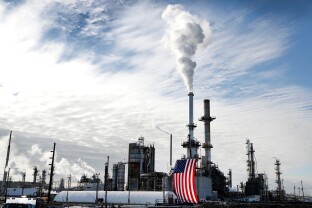Environmental lawyers have been preparing for this moment for years: The Supreme Court has rendered many climate regulations newly vulnerable to legal challenges.
By overturning Chevron deference, the courts are giving themselves more authority to interpret laws — a fact that’s frightening environmental leaders, who say scientists and technical experts will lose decision-making power.
Companies, too, that have cheered the opportunity to challenge burdensome regulations will have to reckon with possible unpredictability in the courts.
